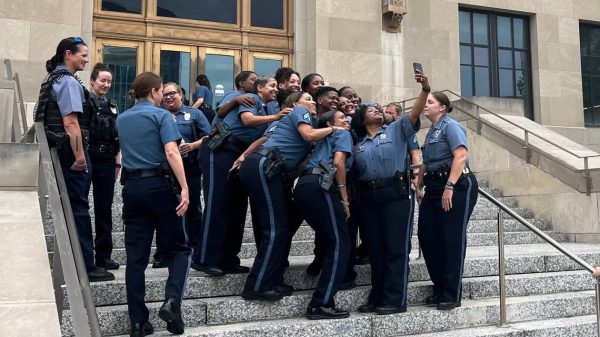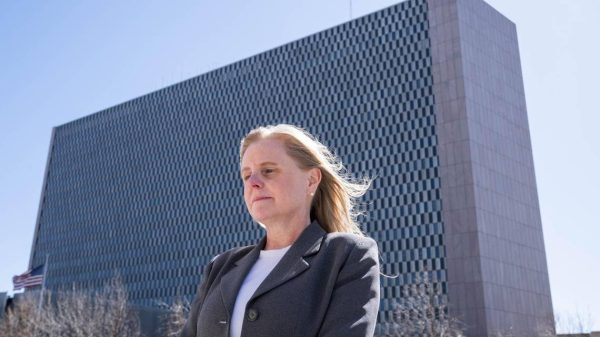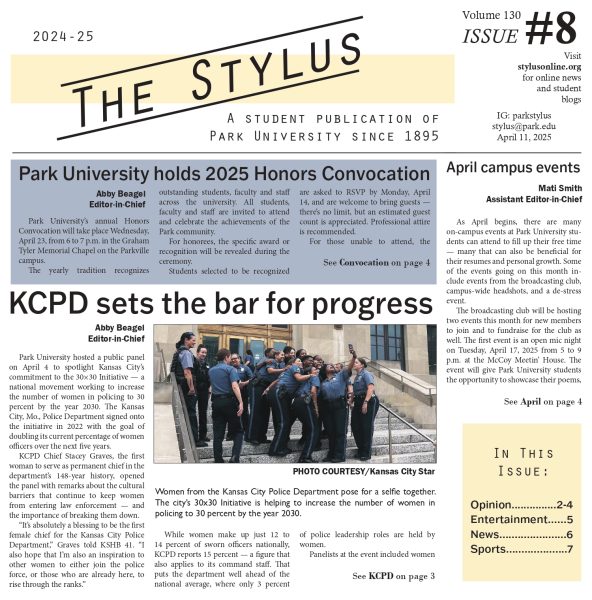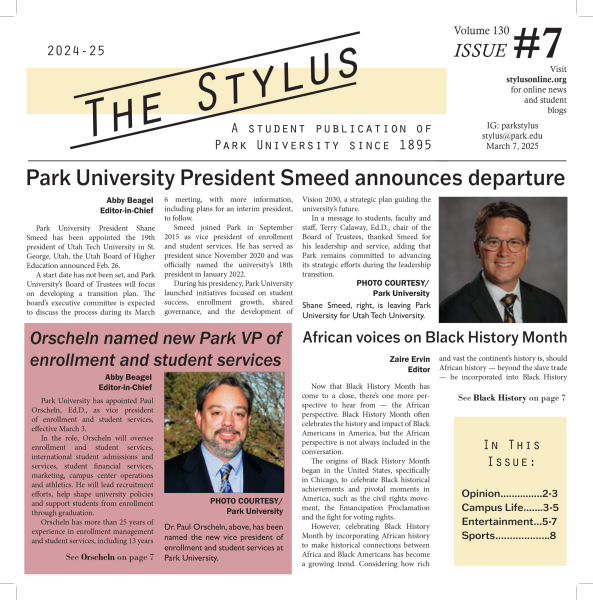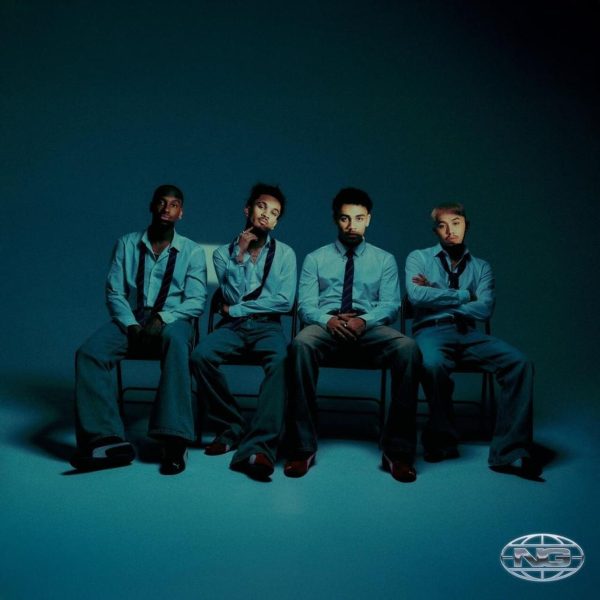Park modifies masking policy
Masks are not required at Park University campuses throughout the nation for the first time in two years.
Unless otherwise required by federal, state or local mandates, Park University will only require face masks in classrooms and university-sponsored transportation, effective March 7.
Park University President Shane Smeed explained that a significant factor in the decision was when Platte County’s community level was removed from the high category in late February. The CDC looks at the combination of three metrics — new COVID-19 admissions per 100,000 population in the past seven days, the percent of staffed inpatient beds occupied by Covid patients, and total new Covid cases per 100,000 population in the past seven days — to determine the community level.
According to the CDC’s COVID Data Tracker Weekly Review, the reported cases seven-day average dropped by nearly 38% while the daily hospitalizations seven-day average dropped by nearly 30% when the university made the announcement.
“The classrooms were a place that we felt like it was important to continue to have masking this semester,” Smeed said. “Outside of the classroom, we would utilize the data that we had coming from the CDC, the county, as well as our medical hospital partners.”
This decision was made in consultation with local authorities, medical professionals and Park’s shared governance. The shared governance included many faculty members who favored keeping masks as a requirement in classrooms, said Smeed.
With these new rules, Park also confirmed that masks will be optional for the following events this semester: Dr. Doris Howell Leadership Awards, Honors Convocation, Presidential Inauguration, Nursing Pinning Ceremony, International Sash Ceremony and the Kansas City Area Commencement.
“Being in the classroom with masks, I see that as a barrier,” said Andrew Johnson, Ph.D., professor of psychology. “I cannot wait for the time when we don’t have to have masks in the classroom.”
While he understands the reasoning behind masks, he believes masks interrupt learning.
“Masks provide a physical layer of distance. For some students, I see that manifesting in the classroom,” Johnson said.
Johnson explained he has noticed that students are engaging less in class. He believes masks also allow students to not answer direct questions posed to them.
“With a mask off, that’s a little bit more difficult to do,” he said.
Other negative effects Johnson has witnessed include comprehension issues for international students who aren’t as proficient in English as native speakers, as well as the missing social aspects of communication.
“We are social creatures. We use a number of the cues in our face to understand what people are saying. When we talk, it’s not just the words; it’s the intonation of it; it’s the inflection, and also what our faces say,” Johnson said.
Students and faculty at Park have been coping with masks in the classroom almost two full academic years. For the 2020-21 school year, the university required masks all over campus, even outside. Then for the first seven months of the 2021-22 school year, the university required masks when inside any building.
The most recent modification to the masking policy, requiring masks in classrooms and university-sponsored transportation, is the closest Park has come to getting back to a pre-pandemic, no-masks normal.
Smeed is hoping that the fall 2022 semester is more like those pre-pandemic semesters and is optimistic that the masks will be made optional everywhere. For Park’s face mask policy to be completely lifted, Smeed said the trajectory will need to continue going in a positive direction.
“We have seen that there is a reduction in severe cases,” Smeed said. “As we review that, we will continue to discuss with our faculty, staff and students about the comfortability of going without masks in the classroom.”
For those still wary about returning to in-person learning with the possibility of no mask requirements next semester, Park will still offer distance education options.
“We want to continue to create spaces for students to be comfortable learning,” Smeed said. “Not only in a face-to-face environment but also in a virtual environment.”
Your donation will support the student journalists of Park University. Your contribution will allow us to cover our annual website hosting costs, freeing up other funds for equipment, printing and training.



